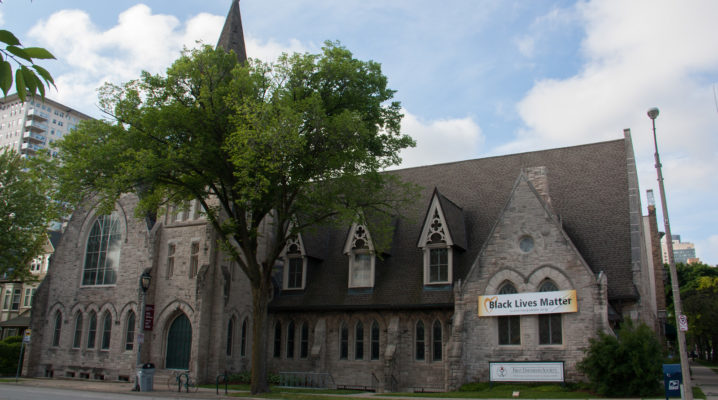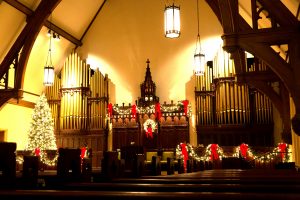
What We Believe
Mission Statement
We gather together to: Nurture the Spirit. Engage the Mind. Inspire Action.
Ends Statements
We, the people of First Church, build community where we:
- Value, develop, and celebrate the gifts that come from authentic connection across difference, emphasizing racial, ethnic, and generational difference.
- Recognize power differences and challenge injustice where it arises.
- Follow the leadership of people most affected by injustice, partnering to move the Milwaukee community toward justice.
- Generously give and receive support, connection, and care in times of joy and challenge.
- Promote Unitarian Universalism and our shared values in the world.
- Open ourselves to wonder, making ourselves vulnerable and available to find meaning, inspiration, and transformation.
- Create communal experiences celebrating our interconnectedness.
- Create accessible, courageous, and innovative welcome to people who might find a sense of belonging and a spiritual home with us.
These Ends Statements were developed by the Board of the First Unitarian Society of Milwaukee, based on input from church members, in Fall 2017.
Values
At the heart of First Church, we value:
- Wonder
- Authentic Connection
- Love
- Justice
What our Church Stands for
As Unitarian Universalists, we affirm the following shared values, all centered around love:
- Interdependence: We honor the interdependent web of all existence and acknowledge our place in it.
- Pluralism: We are all sacred beings, diverse in culture, experience, and theology.
- Justice: We work to be diverse multicultural Beloved Communities where all feel welcome and can thrive.
- Transformation: We adapt to the changing world.
- Generosity: We cultivate a spirit of gratitude and hope.
- Equity: We declare that every person is inherently worthy and has the right to flourish with dignity, love, and compassion.
Unitarian Universalists promote these values as strong values and moral guides. These are not dogma or doctrine, but a guide for those who choose to participate in Unitarian Universalist communities. The sources for these values come from the world’s religions, from humanist teachings based on reason and science, and from other spiritual and ethical traditions.
Unitarian Universalist History
Unitarian Universalism is a liberal religious tradition. The Unitarian part traces back to Europe in the 1500s, with the belief in the unity of God rather than a trinity. Universalism originated with the belief in universal salvation, the idea that everyone will be saved and no one is eternally damned.
In 1961, Unitarians and Universalists merged into the Unitarian Universalist Association. Each of the 1,000-plus congregations around the world are democratic, govern themselves, and has its own unique character.
In the United States, prominent Unitarians and Universalists have included four U.S. presidents, many signers of the Declaration of Independence, and influential historical figures such as Ralph Waldo Emerson, Susan B. Anthony, Henry David Thoreau, Louisa May Alcott, Clara Barton, Frank Lloyd Wright, Whitney M. Young, and Adlai Stevenson.
Unitarian Universalist Organizations
Unitarian Universalist Association (UUA) represents the interests of more than 1,000 Unitarian Universalist congregations. It grew out of the 1961 consolidation of two religious denominations: the Universalists, organized in 1793, and the Unitarians, organized in 1825.
MidAmerica Region includes 194 congregations in North Dakota, South Dakota, Minnesota, Iowa, Kansas, Nebraska, Wisconsin, Missouri, Kentucky, Michigan, western Ohio, Indiana, and Illinois.
UU World is the publication of the Unitarian Universalist Association of Congregations.
